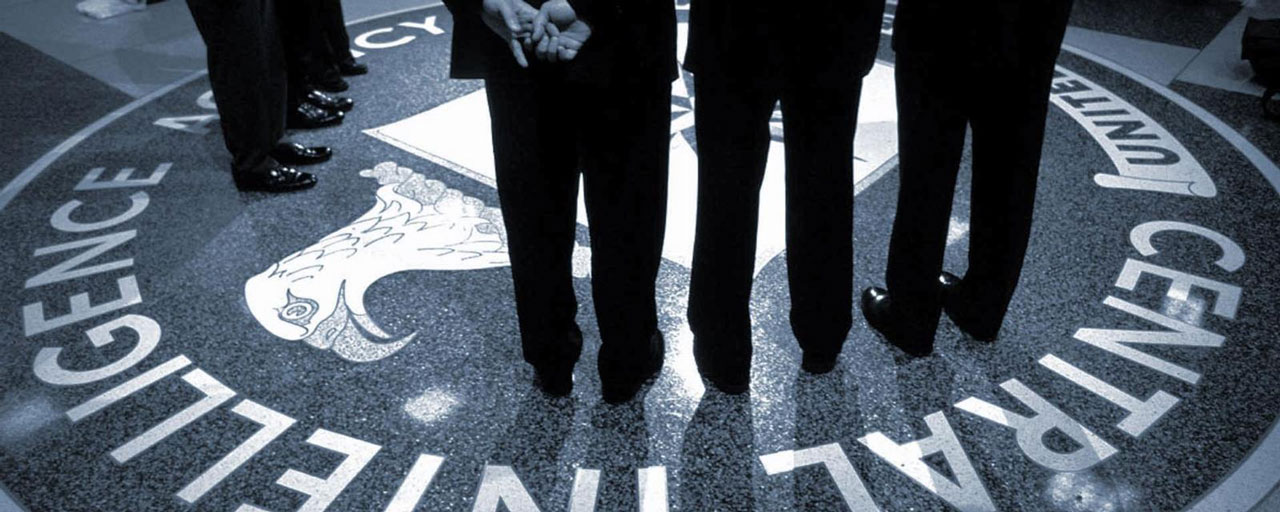On March 18, on his first official visit to the United States far-right Brazilian President Jair Bolsonaro visited the Headquarters of the Central Intelligence Agency. It was outside the President’s official agenda. None of his predecessors had visited the agency, and indeed very few foreign heads of state ever have. The scandal briefly engulfed coverage of his trip on its first day in the Brazilian media, overshadowing planned official events.
The significance of his CIA visit, to Brazil’s sovereignty and democracy, should be obvious to any observer, but was amplified by the identity of his companion, the US-trained Inquisitor-Judge, now appointed Bolsonaro’s own Justice Minister Sérgio Moro, whose controversial jailing of Lula da Silva, who led all polling scenarios, effectively handed the presidential election to the neofascist candidate. The visit came a week after the U.S. Department of Justice’s R$2.5bn kickback to the Lava Jato taskforce with which they had collaborated informally, and in breach of Brazil’s constitution, on the prosecution of former president Lula, who has been the most high profile scalp in a continent-wide lawfare strategy.
In context of the situation in Venezuela, and the Trump administrations desire for Brazil to play a active, even military role, this was a timely and explosive story, and worthy of serious investigation. Surely more liberal English-language outlets would report on a US-backed Neofascist President’s visit to the CIA and meeting with its notorious chief and “Torture Queen” Gina Haspel? Bolsonaro’s enthusiasm for torturers has been widely reported, why exactly did that became a media taboo upon landing in Washington D.C.?
In a chilling demonstration of a “free press” working in lockstep with foreign policy, its master narratives and the intelligence agencies themselves, the Guardian, NYT, and BBC failed to mention Bolsonaro and Moro’s CIA visit even once, across various published articles on the tour. The Guardian published three articles, all of which omitted the CIA visit which was dominating the news cycle in Brazil on March 18. NYT ran AP and Reuters wires without fanfare, but published no reporting, analysis or commentary of their own. The BBC made no mention whatsoever.
What are we to conclude about editorial and journalistic integrity when such a significant geopolitical story, which concerns the destiny and wellbeing of 209 million souls is intentionally buried? Who made those editorial calls, and to whom are they answerable to?
Ironically, the most CIA associated newspaper in the United States, the Washington Post, was less coy, running two AP authored pieces which mentioned the visit and its repercussions, and again in this original story on the negative reaction and embarrassment in Brazil to the far-right president’s visit.
As to be expected, most of the news agency copy framed the CIA visit broadly in the government’s own terms of improving Brazil-US relations, rather than focus the agency’s historic record of intervention in Brazil and Latin America, nor its role in the political turmoil of recent years. Rollback of the so called ‘Pink Tide’ over the past decade is United States foreign policy, not some natural and inevitable cycle, as it is often depicted.
That no major English-language media outlet saw this story as significant enough for proper investigation or even substantial comment only re-emphasises its cowardice and abject failure in the region. Mediocre Anglo hacks living it up in Rio de Janeiro and São Paulo have become dead-eyed foot soldiers of empire, with consciences bypassed for the maintenance of a colonist lifestyle.
Democracy dies in darkness, indeed.
[qpp]

